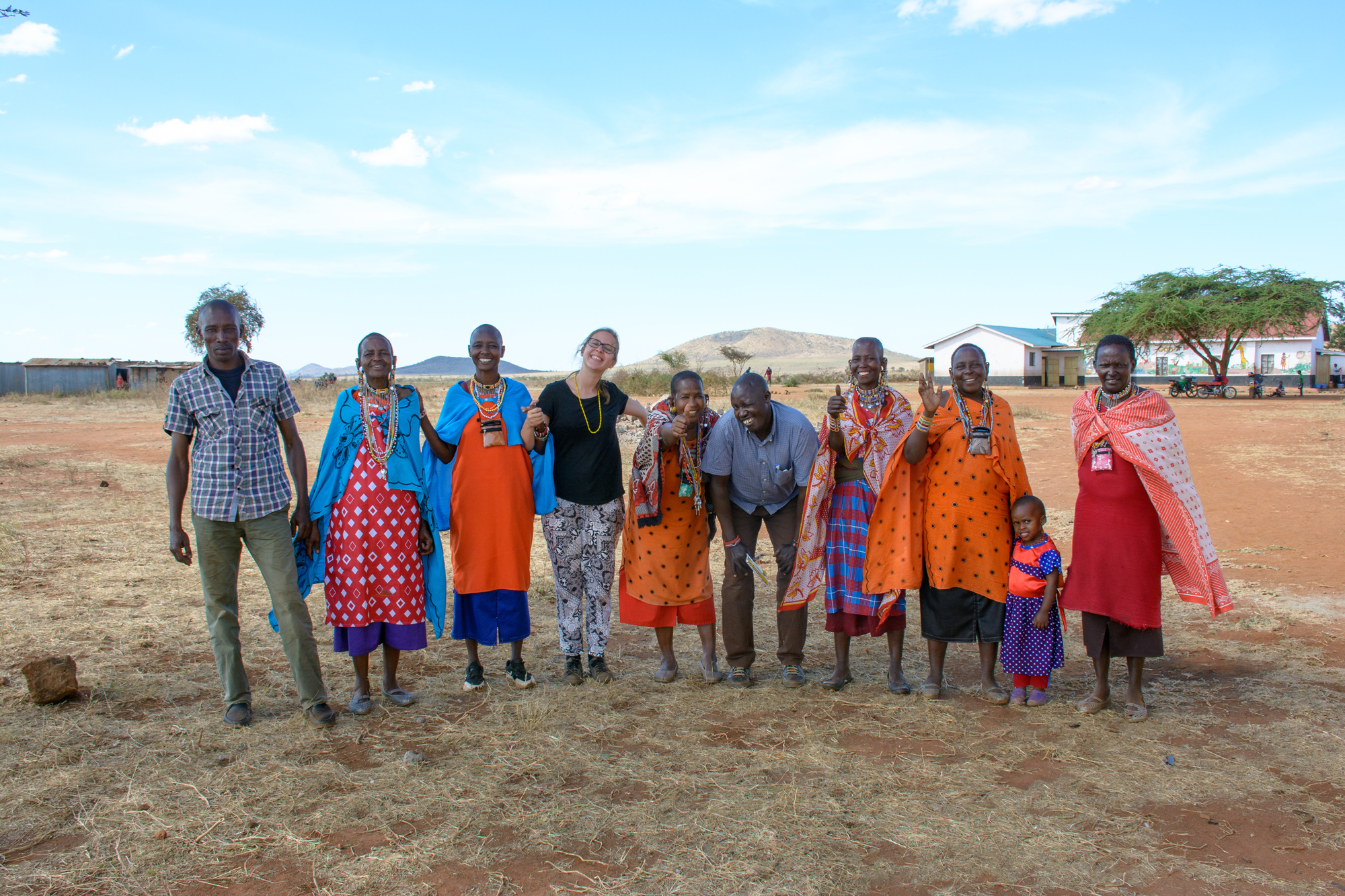Why we support
- We want to prevent HIV / AIDS from spreading further in the poorest regions of the world.
- We believe that suffering caused by poverty is structurally unnecessary.
- We stand for sustainable help for self-help and justice as well as for respect and appreciation for disadvantaged people.

Where we support
Emali - "The city that never sleeps"
Emali is located between the capital Nairobi and the coastal city of Mombasa, on the Mombasa Road, one of the most important roads in East Africa. Many truck drivers stop in Emali, some hotels, many food and beverage stalls, and a lively nightlife have established themselves in the small town, and thus the so-called oldest profession in the world.
Thriving prostitution
About half of the population in Emali are poverty-stricken (< $ 1.25 / day) and many of the older generation can neither read nor write. The region lacks industry. The cityscape is characterized by hair salons, sewing rooms, and food shops. Anyone who owns a piece of land is building something, but with unpredictable climatic fluctuations agriculture has become increasingly difficult in the semi-arid highlands of Kenya. Due to lack of education and jobs, many women in the region are left only with prostitution.
Epicenter of HIV distribution
Due to the flourishing prostitution, which is illegal in Kenya and therefore uncontrolled, the HIV rate in Emali is many times higher than in other regions of the country. Anyone who has been infected with HIV often keeps the disease a secret out of fear of stigmatization. As a result, the infection rate continues to increase. These are reasons enough for Daraja - The Bridge to do something about it.
How we support
HIV-positive people from and around Emali organize themselves in self-help groups which are professionally supported by our employees. This structure makes it possible to overcome exclusion and it provides mental, social, and economic support.
Trainings are offered to the self-help groups. A literacy course for people with a lack of education takes place weekly. In addition, basic knowledge of leading a business is taught. Individual trainings such as cooking, hairdressing as well as trainings in animal breeding and agriculture enable independent professional activity and financial independence.
After completing the training, self-help group members can apply for microcredits. The group members underwrite the loans of each other. Loans are repaid weekly within the previously fixed term. Gradually, the construction of own small business takes place. This strengthens the local and regional economy.
HIV is an autoimmune disease and therefore often leads to comorbidities. Only those who are stable in terms of health can escape poverty in the long term. For this reason, Emali has set up a small, project-owned clinic that provides free basic medical care for project members and their families.
Daraja - The Bridge is not only committed to people already infected with HIV in one of the poorest regions. In the long run, a further spread of the virus should be stopped. In form of health education, people are taught about HIV / AIDS and how to deal with the disease.
Whom we help
Emali is inhabited by a wide variety of ethnic groups, including Kenya's probably most well-known population, the often traditionally living Maasai with their herds of cattle. Diversity is also mirrored in our self-help groups. 100 HIV-positive women and men of all ages are organized in six groups. In 2014, the project founded a separate children's group consisting of about 30 HIV-positive children between the age of 3 and 18.
Children's project "Watoto"
Children and adolescents in Kenya find it particularly difficult to openly declare themselves HIV-positive. Family members usually keep their HIV-status a secret to children for years; education about sexuality, contraception, and HIV is still a taboo in many places. This often leads to adolescents having unprotected sex, passing the virus, and becoming pregnant. UNICEF estimates that 30-50% of the girls in Kenya have their first child before their 19th birthday. And while the rate of HIV new infections declines in whole numbers, it has risen by 30% in the group of the 10-19 year olds since 2005.
In order to ensure education and training for the young generation in Kenya, the children affected by HIV / AIDS in our children's project "Watoto" in Emali not only receive psychosocial and medical care, but also financial help for school. Costs for school fees and school uniforms are taken over by us. Once a trimester, our employees visit the respective schools of the children.
The children and adolescents of the group "Watoto" are introduced to the subject of HIV / AIDS at regular group meetings and in the course of home visits by our employees. Together with the children we work on the topics of nutrition, hygiene, and health in a playful way. At the group meetings of several hours, people sing, play, discuss, but also learn together. In cooperation with parents healthy snacks are prepared and eaten at the meetings. In addition to all of this, the children receive free treatment in the project-owned clinic.